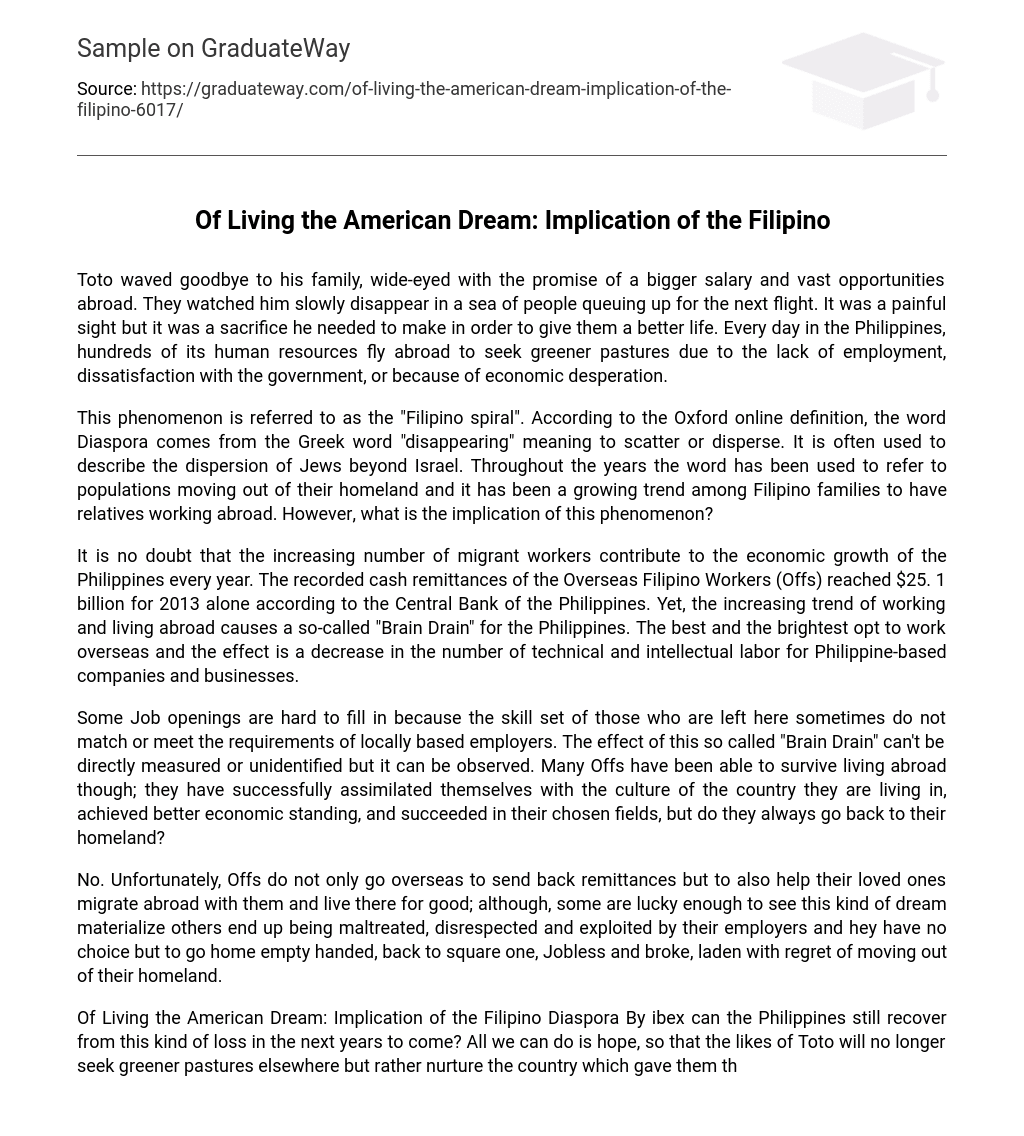Toto departed from his family, filled with optimism for a higher income and increased prospects abroad. His relatives stood by, observing as he merged into the throng of people awaiting the next plane. While it was challenging to bid him farewell, he understood that this sacrifice was vital in order to secure a better life for them. In the Philippines, numerous individuals opt to leave their homeland in pursuit of improved employment opportunities due to discontentment with the government, economic despair, or limited job availability.
The term Diaspora, commonly known as the “Filipino spiral,” originates from the Greek word “disappearing,” meaning to scatter or disperse. Historically used to depict the migration of Jews outside of Israel, it has also been employed to describe relocating populations from their native lands. The increasing trend of Filipino families having overseas relatives raises questions about its implications.
The economy of the Philippines is greatly improved by an increasing number of migrant workers. The Central Bank of the Philippines reports that in 2013 alone, Overseas Filipino Workers (OFWs) sent $25.1 billion in cash remittances back to their home country. Nevertheless, this phenomenon also leads to a “Brain Drain” as talented and skilled individuals choose to work overseas, leaving domestic companies and enterprises with a shortage of technical and intellectual labor.
Locating suitable candidates for specific job openings can pose a challenge, as many remaining applicants lack the required skills or qualifications desired by local employers. This occurrence, referred to as “Brain Drain,” is difficult to measure but evident. However, numerous individuals who have relocated to another country have flourished by wholeheartedly embracing the local culture, enhancing their financial status, and achieving success in their chosen careers. Nevertheless, it remains uncertain whether they eventually return to their home country.
Unfortunately, Offs not only go overseas to send money back home but also help their family members migrate and settle permanently. Sadly, while some achieve their goals, others suffer from mistreatment, disrespect, and exploitation by employers. As a result, they are forced to return empty-handed to their original situation – without a job, in poverty, and filled with regret for leaving their homeland.
Can the Philippines recover from the loss caused by Filipino diaspora in the future? Hopefully, individuals like Toto will no longer feel obliged to search for better prospects elsewhere, but instead focus on nurturing the country that motivated their dreams. Source: “Diaspora, n.” ODE Online. June 2004. Oxford University Press. 18 Feb. 2014.





